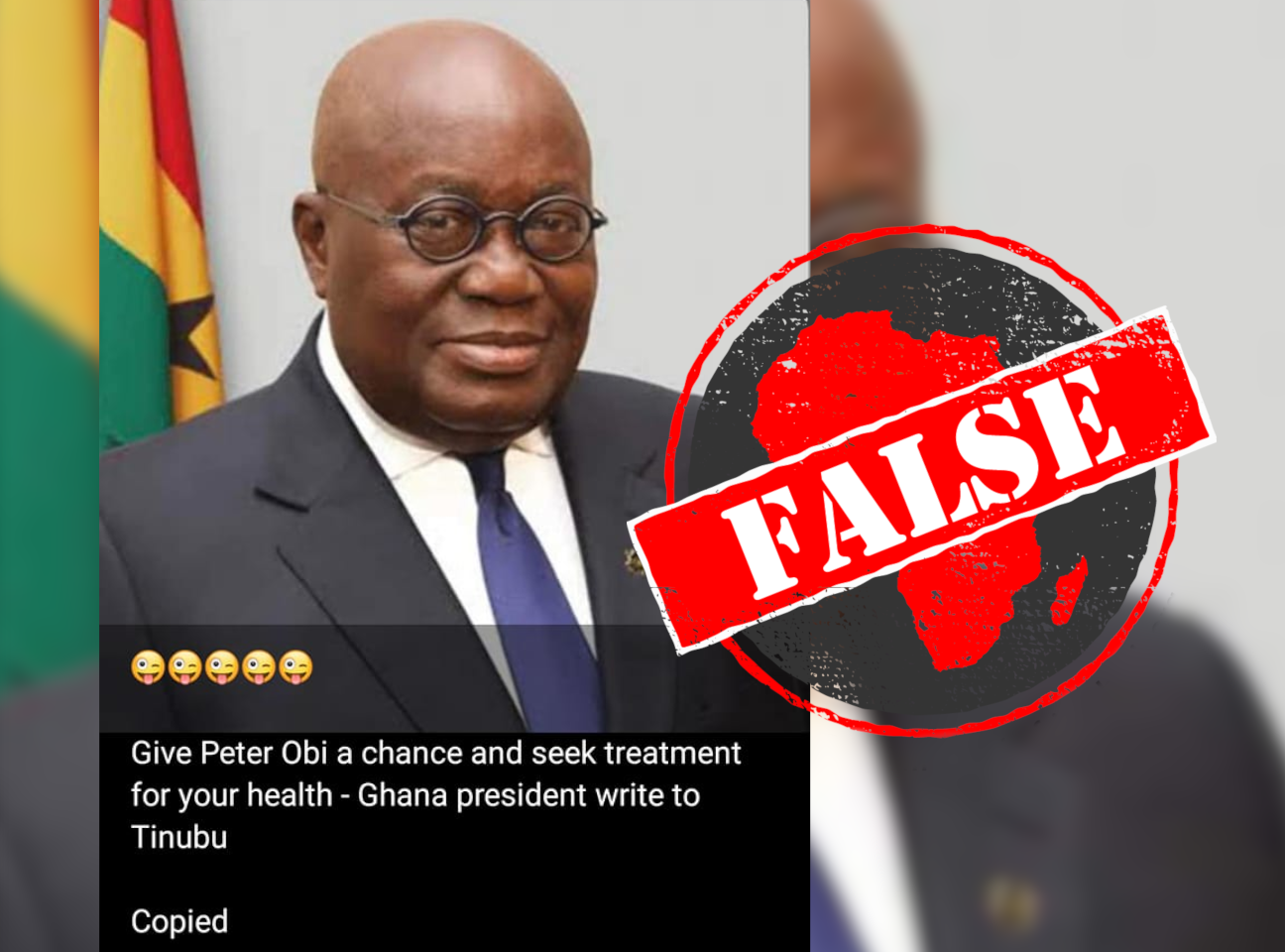Ghana’s president Nana Akufo-Addo has stepped into Nigerian politics by advising presidential candidate Bola Tinubu to give way to his rival, Peter Obi. That’s according to messages circulating on Facebook since late June 2022.
“Give Peter Obi a chance and seek treatment for your health - Ghana president write Tinubu,” a typical version reads. Other versions can be seen here, here, here and here.
Nigeria is slated to hold presidential elections on 25 February 2023. Tinubu, 70, is the All Progressives Congress candidate while Obi, 61, is running on the Labour Party ticket.
Ghana lies to the west of Nigeria in West Africa. But did its president really write to Tinubu to tell him to give Obi “a chance” and instead seek health treatment? We checked.

‘Completely false and mischievous’
The messages don’t give any details about when Akufo-Addo wrote to Tinubu. And there have been no reports of the letter by any credible local or foreign news outlets, which would have been the case if it had been written.
On 9 August, Akufo-Addo posted a screenshot of one of the messages on his verified Twitter account, stamped “FAKE”.
In a series of three tweets, he described the claim as “disturbing”, as well as “completely false and mischievous, with no iota of truth whatsoever in it”.
“I have written no such letter to the APC leader, and it will not occur to me to do so. Ghana and Nigeria boast of decades of cordial, strong, and brotherly relations, and I am not going to be the one to interfere in the internal affairs and politics of Nigeria,” Akufo-Addo wrote.
Republish our content for free
For publishers: what to do if your post is rated false
A fact-checker has rated your Facebook or Instagram post as “false”, “altered”, “partly false” or “missing context”. This could have serious consequences. What do you do?
Click on our guide for the steps you should follow.
Publishers guideAfrica Check teams up with Facebook
Africa Check is a partner in Meta's third-party fact-checking programme to help stop the spread of false information on social media.
The content we rate as “false” will be downgraded on Facebook and Instagram. This means fewer people will see it.
You can also help identify false information on Facebook. This guide explains how.


Add new comment